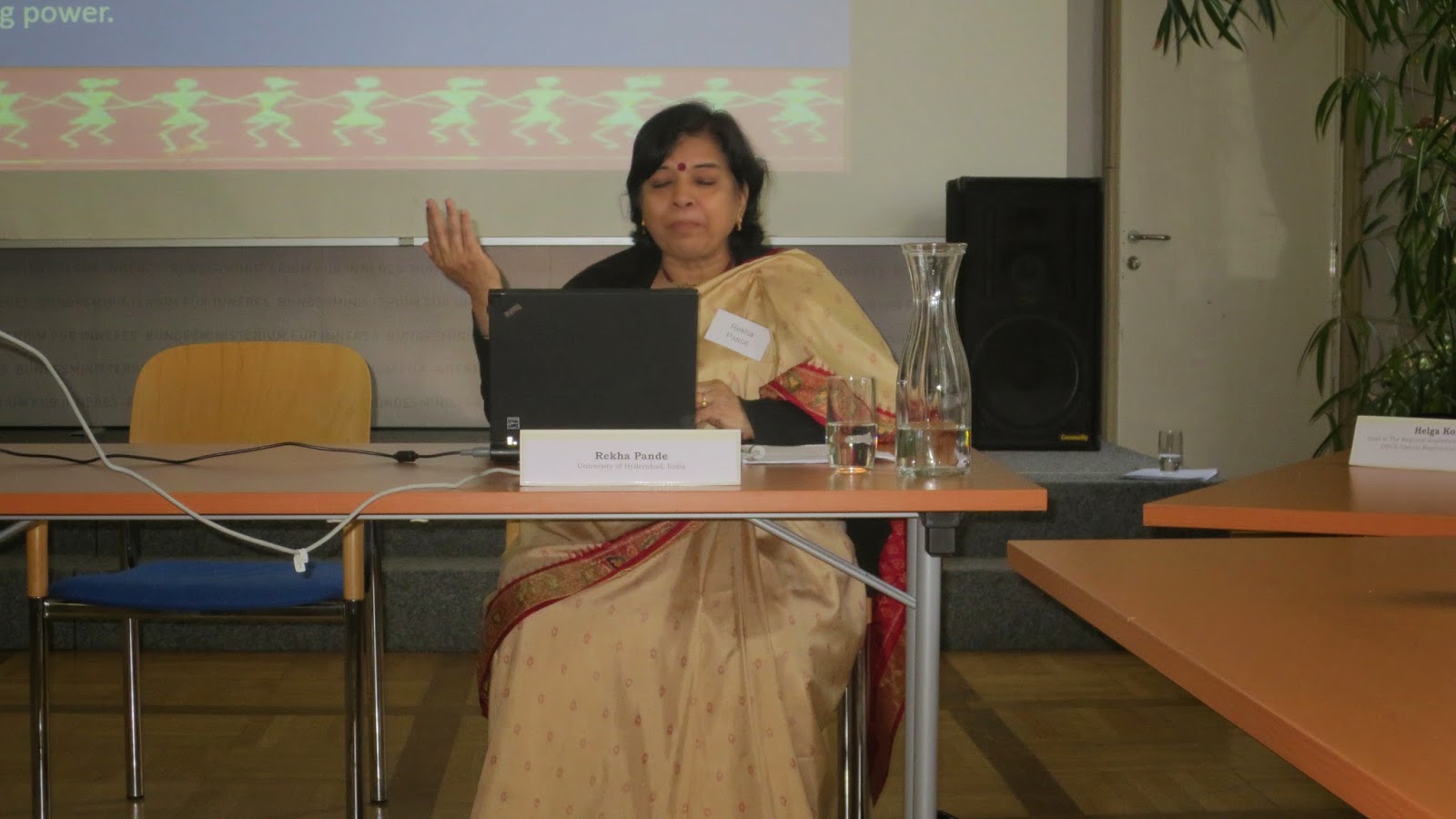I am invited to Vienna to participate in a workshop on Actors - Discourses - Practices: Historical and Contemporary Perspectives on Governing Trafficking in Women. 110 Years of Experience. Participants came from different parts of the world though I was the only one from South Asia. There were papers from Warsaw, Australia, Austria, Netherlands, Italy, Germany, Russia, Pennsylvania, USA, Thailand . This was a mix of Academicians , NGO, Policy makers, Government Officials, Police makers, activists and research students. This was a wonderful experience and I learnt a lot from others and many of the confusions in my mind with regards to trafficking conventions became clear. We could understand the enormity of the issue though prostitution is legalized in Netherlands and Germany and I could understand the advantage and pitfalls of this. Austria has an ambivalent attitude to Prostitution and it does not criminalize it but accepts it but there are a large number of illegal persons from Eastern Europe who are now in the trade.
I was invited to give the key note and the organisers had asked me if they can make my talk public. I agreed and hence mine was the only talk that was open to public.My talk was from 5,30 to 7 and followed by a dinner. During tea break a lady came up to me and said that she will be introducing me to the public. I just nodded and though she must be one of the organisers and after introducing me this lady sat down in the public to listen to me. After my talk was over she came once again and acted as a moderator when people asked questions on trafficking in south Asia. It was only later that I discovered that this lady was a minister in the Austrian Government and currently Dr. Helga Konrad, has been appointed OSCE Special Representative on Trafficking in Human Beings by the Chairman-in-Office, Bulgarian Foreign Minister Solomon Passy and is a leading politician in the European Union dealing with issues of trafficking. I had similar experiences in Netherland, where the minister for Gender came on a cycle all alone and left the same way after giving her talk and in Brazil where the minister had dinner with me in the hotel and as we were having dinner she ordered for a taxi to take her to the airport for she had an important cabinet meeting in Brussels the next day.
All these experiences made me really think as to how we developed the tradition of key note addresses with a lot of fanfare in our country. Though we have reduced this considerably in Hyderabad in many places and regional Universities where I am invited we have speeches after speeches by every one sitting on the dias, garlanding, lighting of lamps, shawl being given, bouquets’ being given along with gifts and thee key note address just gets lost down the line. I am wondering as to how did this tradition start ? I am sure we cannot blame the Colonial government for this is not done in UK today. Is this a relic of the Princely states in India? Imagine a minister coming to an Indian Conference to introduce some one and listening to others. Our ministers only come to talk and give speeches whether the subject is theirs or not and here was a person who had done so much work , was an important figure politically and just sat and listened to me. I got a lot of pleasure just imagining the fact that a Mayawati, a Mamta Banerjee , a Jaylalita, a Sushma Swaraj or a Renuka Chowdhry come and attend a Conference to listen to some expert and go away quietly. Will we see this day? After my talk there was dinner and I learnt another thing where they stated to many participants you are most welcome but please understand this is not an invitation. Our Conferences are almost like our weddings with a lot of eating, cultural activities put together. I am organizing the Women’s World Congress from 17th to 22nd August and imagine telling you are welcome but not invited. Every country has a different culture and a way of doing things even official and it becomes very difficult to change this. I have realized this down the line.















.jpg)

.jpg)

.jpg)

.jpg)
.jpg)
